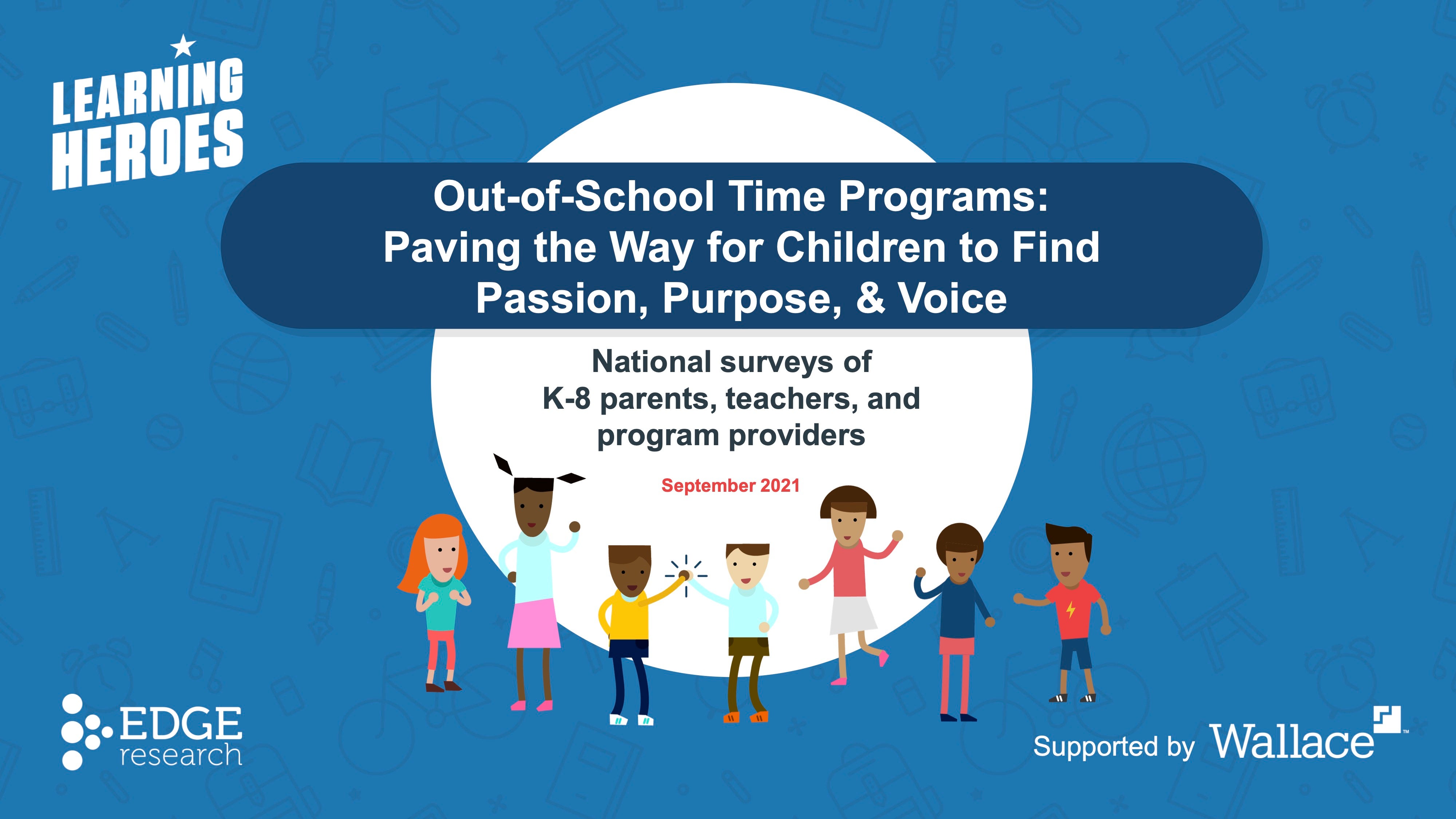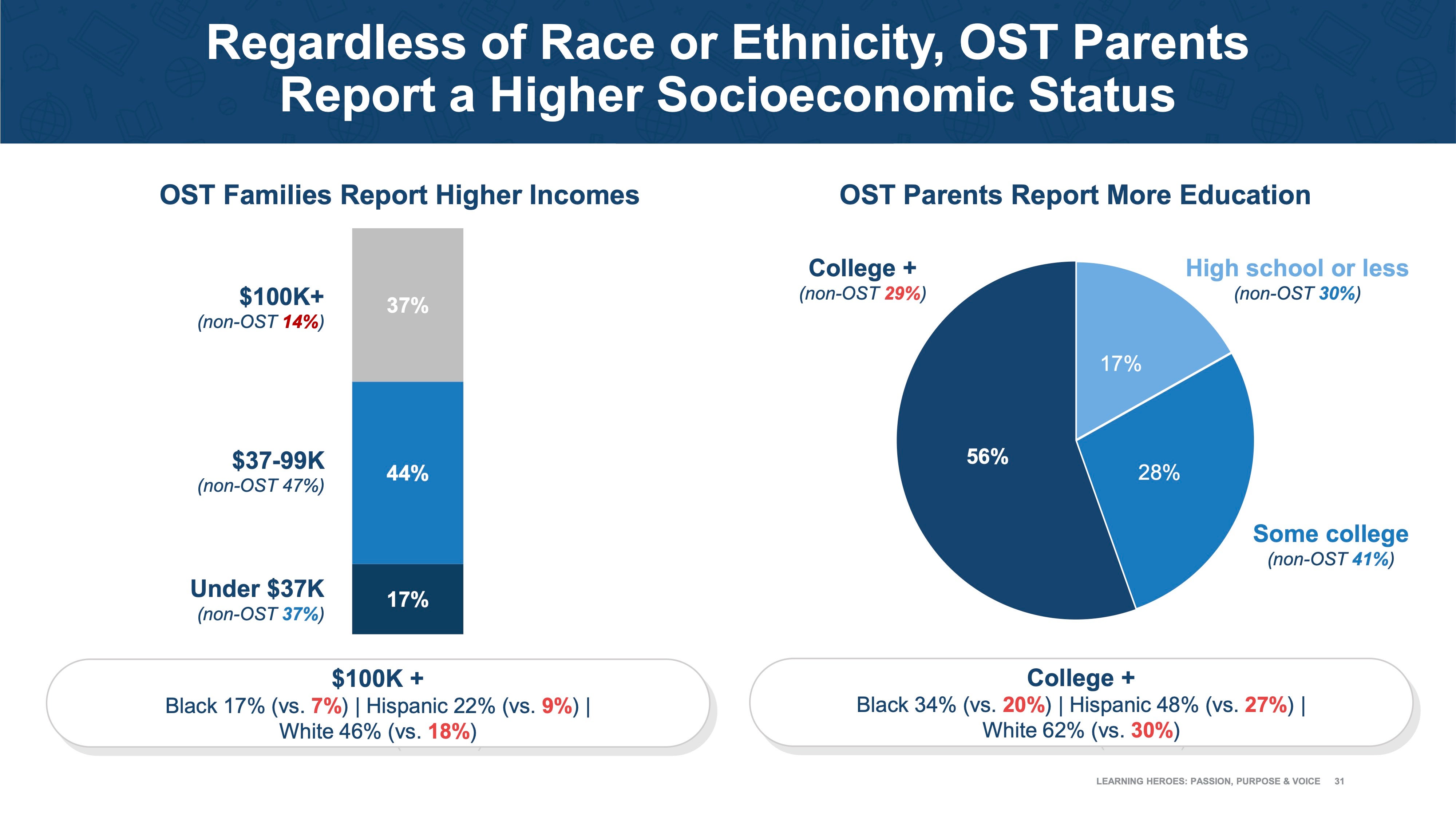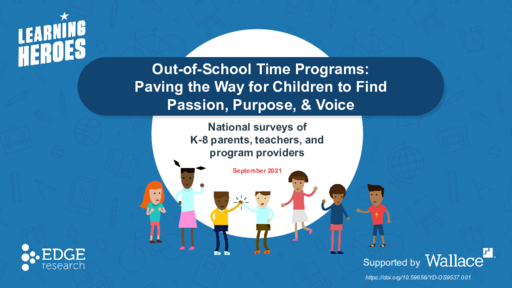
Breadcrumb
- Wallace
- Reports
- Out-Of-School Time Programs Pavi...
Out-of-School Time Programs
Paving the Way for Children to Find Passion, Purpose & Voice

- Author(s)
- Pam Loeb, Stacia Tipton, Erin Wagner, Lynn Olson, Bibb Hubbard, Windy Lopez-Aflitto, and David Park
- Publisher(s)
- Learning Heroes and Edge Research
Summary
How we did this
Researchers surveyed a sample of 3,031 respondents, including 2,020 parents and guardians of K-8 children in public/public charter schools, 631 teachers, and 380 OST providers.
How do parents perceive the role of out-of-school-time (OST) programs in their children’s social, emotional, and academic development? And how does that compare to the views of teachers and program providers?
Answering those questions was the goal of a national survey of more than 3,000 parents, teachers, and OST program providers.
The survey was conducted by Arlington, VA-based market research firm Edge Research and Learning Heroes, a nonprofit dedicated to elevating the voice of parents in education.
Parents’ Goals
The survey found that parents have three priorities for what they want OST programs to address for their children:
- Their social and emotional health
- Providing them with physical outdoor activities
- Helping them discover their passion and purpose
The report also found that parents see a distinct role for OST experiences that is different from home or school. Parents view OST programs as settings in which children develop social skills like teamwork, confidence, leadership, and perseverance.
Conducted in the midst of the COVID-19 pandemic, the survey revealed significant worries among parents about its impact. Many feared their children were struggling academically, socially, and emotionally.
Differing Views
There were some clear differences in perspectives among parents, teachers, and OST providers.
- Markers of a quality program. For parents, the chief markers of a quality program included: your child seems happy (83 percent), the staff is trustworthy (82%), and the staff respects you and your child 81%.
The top indicators for teachers, on the other hand, were: the staff is trustworthy (84%), children are developing social and emotional skills (81%), and physical safety of the environment (80%). And, among OST providers the top markers included: the staff is trustworthy (70%), the staff is caring (64%), children are meeting new people/making new friends of diverse backgrounds (63%).
- Overall program ratings. Families and professionals also rated the quality of programs differently. Forty-one percent of parents assessed programs as excellent vs. 22 percent of teachers and 38 percent of OST providers.
Access and Barriers
The survey’s findings also pointed to an unequal access to quality OST programs. For example, families with children in OST programs reported higher incomes and more education than non-OST parents.
Parents also identified cost, time, and transportation as barriers keeping them from participating in OST programs. In rural towns and less affluent districts, geography posed another stumbling block.
In conjunction with the report, there’s an online Playbook to help educators, providers, and advocates use the survey findings to communicate the value of OST activities.
Key Takeaways
- Parents' top priorities for OST programs include boosting their children’s social and emotional health, providing them with physical outdoor activities, and helping them discover their passion and purpose.
- Forty-one percent of parents assessed OST programs as excellent compared to 22 percent of teachers and 38 percent of OST providers.
- Families with children in OST programs reported higher incomes and more education than non-OST parents.
Visualizations

Materials & Downloads
What We Don't Know
- How prepared were children in OST programs vs. those not in OST programs for the fall 2021 school year?
- How can districts address the problem of unequal access to high-quality OST programs?

